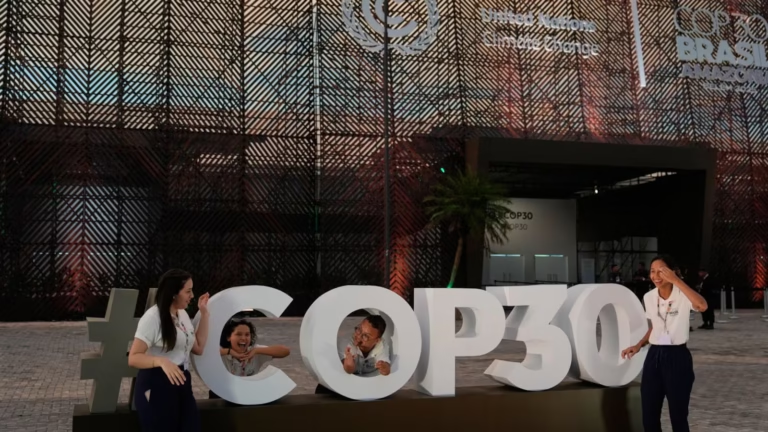Midway through COP30, civil society observers report cautious optimism as early discussions signal progress on key climate issues. Nations appear more engaged in talks on just transition, adaptation, and international cooperation.
The conference, held to advance global climate goals, brings together delegates from governments, NGOs, and civil society. Early briefings indicate increased willingness among countries to find common ground on pressing environmental challenges.
Just transition, a framework for ensuring that workers and communities are supported during shifts to low-carbon economies, has emerged as a central focus. Participants noted stronger dialogue on policies that balance climate action with social and economic considerations.
Adaptation measures are also gaining attention. Countries are exploring ways to strengthen resilience against climate impacts, including extreme weather events, rising sea levels, and other climate-related risks. Early negotiations show a commitment to shared strategies and resource mobilization.
Civil society representatives expressed “cautious hope” that COP30 could yield tangible outcomes. Observers emphasized that while agreements are preliminary, the tone of discussions marks a positive shift from previous conferences.
Cooperation among nations is improving, with delegates engaging in technical discussions and bilateral talks to address funding, technology transfer, and capacity-building for vulnerable regions. These efforts are key to achieving long-term climate goals.
Environmental groups have highlighted that the effectiveness of COP30 will depend on concrete commitments. Early signs of collaboration are encouraging, but civil society stresses that sustained follow-through is critical to meet global targets.
The conference also includes side events and workshops focused on innovation, renewable energy, and climate finance. These sessions allow countries and organizations to share solutions and best practices for reducing emissions and supporting communities impacted by climate change.
Observers note that transparent reporting and accountability will be vital. Civil society is monitoring discussions closely, advocating for measures that ensure fairness, equity, and effective implementation of climate policies.
While COP30 is still in progress, the early momentum on just transition, adaptation, and international cooperation provides a hopeful outlook. Stakeholders are watching closely to see if these signals translate into lasting agreements.
The conference underscores the complexity of global climate negotiations. Success requires balancing national priorities, financial capabilities, and social considerations while pursuing ambitious environmental targets.
As talks continue, delegates are expected to focus on detailed frameworks for action, financing mechanisms, and collaborative initiatives that advance the Paris Agreement goals. Early engagement suggests that COP30 may foster stronger partnerships and practical solutions for climate resilience.
Civil society remains cautiously optimistic, emphasizing that early progress must be sustained through transparent agreements and cooperative implementation. The next phases of COP30 will determine how initial signals of constructive engagement evolve into concrete outcomes.


